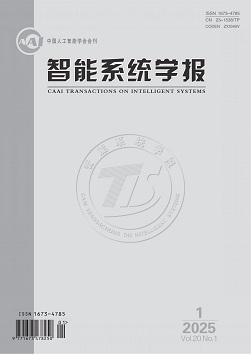¡¡¡¡Integrity in scientific research is of paramount importance. The editorial board of CAAI Transactions on Intelligent Systems (CAAI-TIS) formulates its Publication Ethics based on the Best Practice Guidelines of the Committee on Publication Ethics (COPE) and Chinese Academic Publication Norms¡ªDefinitions and Examples of Journal Academic Misconduct (CY/T 174¡ª2019). For more detailed information, please refer to the Code of Conduct issued by the COPE, available on the official website (http://www.publicationethics.org/). and the Publication Ethics of China¡¯s National Press and Publication Administration (NPPA). We are committed to upholding the integrity of scientific research, adhering to high-standard publication ethics, and ensuring high-quality academic publication.
1. Authors¡¯ Responsibility
1) The contents of the manuscript should comply with the relevant Chinese laws and regulations, and conform to the requirements written in the journal¡¯s Instructions for Authors. Authors must ensure that the research work of the submitted paper is original and no confidential information is included. Plagiarism, data falsification and other academic misconduct are not tolerated. The manuscript should not contain any information that has already been published.
2) Authors must accurately and objectively describe their research process , present findings and discuss the significance of their results. The manuscript should be grammatically correct and written in academic style.
3) The research results of previous scholars should be evaluated objectively and cited correctly in the manuscript.
4) The arrangement of author names of a paper should abide by the journal requirements regarding authorship. Once submitted online, the author list cannot be arbitrarily changed; no addition, removal or rearrangement of author names can be made.
5) Any funding and assistance related to the research should be acknowledged in the manuscript.
6) The reviewer comments should be respected by authors and revision be made in a point-by-point fashion. If an author does not agree with the reviewer, appeals can be made to the editorial board.
7) If errors and inaccuracies are found by the authors after publication of their paper, they need to be promptly communicated to the editors so that correction or retraction can be made.
8) Simultaneous submission of manuscripts to more than one journal is not tolerated.
2. Reviewers¡¯ Responsibility
1) The manuscript review should be completed within the specified time, and the review comments be submitted to the editorial board in time. If it cannot be completed on time, the editorial board need to be informed in time.
2) Review comments should be scientific, accurate and objective without biased opinion or personal attack to guarantee impartial refereeing. Detailed revision suggestions should be given to help authors improve the quality of the paper.
3) If academic misconducts such as plagiarism and simultaneous submissions to different journals are found, peer reviewers should notify the editorial department in time.
4) Reviewers should pay attention to the appropriate use of citations in the manuscript. It is not allowed to paraphrase other scholars¡¯ work without giving credit to the original author. Reviewers should not suggest the author to quote their own papers for personal interest. At the same time, reviewers should remind the authors of the substantive similarity between the submitted manuscript and published work.
5) Peer reviewers should respect the author¡¯s research results, keep the content of the manuscript confidential, and do not make inappropriate and illegal use of the author¡¯s research work.
6) In case of competition, cooperation or other related conflicts of interest with authors and their organizations, reviewers should take the initiative to avoid reviewing the manuscript.
3. Editors¡¯ Responsibility
1) Editors should abide by state laws and regulations related to publication and press. Academic publication ethics and integrity of scientific research is to be maintained in the processing of manuscripts. It is essential that each manuscript is handled in a fair and timely fashion to ensure the high standard and quality of the publication of our journal.
2) Editors should maintain editorial independence and do not interfere with the decision making of acceptance or rejection of the manuscripts. Editorial decisions are only based on reviewers¡¯ comments on the scientific quality and originality of the paper and whether the manuscript fits the scope of the journal. Decisions should not be made based on author¡¯s workplace, gender, professional title, academic honors and nationality.
3) The double-blind review is implemented, and the editors ensure that the names of author and reviewer are not known to each other.
4) Editors should respect the author¡¯s research results, keep the content of the manuscript confidential, and do not make illegal use of authors¡¯ research results.
5) Editors should respect opinions of both the author and the reviewers, If an author disagrees with the reviewer, he/she is allowed to appeal.
6) Competent reviewers are added to the pool of reviewers to improve journal quality.
7) Author diversity and academic debate is promoted.


